Gila Cliff Dwellings
These ruins of a pre-Columbian cliff village are among the most beautiful and well preserved in New Mexico.
Often described as the “most beautiful” of the pre-Columbian ruins in New Mexico (not a small feat when one considers the abundance of ruins in New Mexico), these cliff dwellings are truly off the beaten path. Nestled in a scenic side canyon in the Southwestern part of the state that’s more noted for the later Apache occupation and Geronimo fame, these ruins provide solitude and beauty in equal amounts.
Who built these ruins? For years, mostly nomadic tribes used these naturally formed caves on the Gila River for shelter. A relatively small family group, sometime around the 1200s, decided to make this a permanent home. Sadly for them, this lasted only for about a generation before they abandoned the area. For us, however, the desert climes, coupled with the shelter from the elements in the caves, have kept the ruins remarkably preserved.
While occupied, these ruins housed roughly a dozen family groups of the modern-day classified Mogollon People. Considered to be on the northernmost boundary of the civilization, the park is home to a couple prominent ruin sites. In these canyons, with a scenic river flowing through them, the Mogollon hunted, planted their crops, raised families and enjoyed the shelter the caves provided.
In the main site, nestled in the five main caves, archeologists have identified 46 rooms. The walls are remarkably well preserved and relatively easy to visit. When visiting ruins of any type, it is often recommended to just sit quietly at the walls and peer at the sky, listening to the chirping wildlife and soaking up the experience. The Gila Cliff Dwellings, with its relatively modest visitation by tourists, offers a wonderful opportunity to do just this. Like Hovenweep to the north, it is remarkably easy to have a little time to yourself, in an effort to transport yourself mentally to the past.
Know Before You Go
The park is open during the days and generally during normal daylight hours. The trail to the Cliff Dwellings is closed at 5 p.m., and the last hikers are allowed to start up at 4 p.m. Recently, the park service has offered moonlight hikes on a handful of summer dates. Be sure to check with the park if interested in that.
Hiking to the ruins does require a roughly one-mile hike up a side stream, with a small amount of elevation gain. The walk is not handicap accessible as it crosses a few small bridges and up an incline with irregular stairs that require a moderate amount of exertion in the climb portion. Still, it can be done by anyone of moderate health and takes roughly an hour, roundtrip.
The trail is closed and locked in the evening when the park closes. Note that there is a price of admission, and not the usual National Park fee: the arm-tiring drive over the windy mountain pass to this National Park. Plan on taking a full hour and a half to drive a little over 40 miles from Silver City, New Mexico to the park. Yes, it is scenic as you swerve through the curvy, mountain roads. But, there is no shortcut, or fast way there—the speed limit ranges from 20 mph to 40 mph and most of it is towards the slower end. Much like the drive to Hana on Maui, enjoy the drive with its scenic overlooks; except with this one, you have a splendid destination as well.
Lodging is not abundant, or generally nearby. There are a few rooms within Gila National Forest itself; otherwise, most travelers visit in the daytime by driving from Silver City or the small town immediately to the north, Pinos Altos, where there are several businesses renting cabins. The remoteness of the location, coupled with the hours of operation, lend to moderating visiting crowds; a bonus for those who take the time and effort to visit.

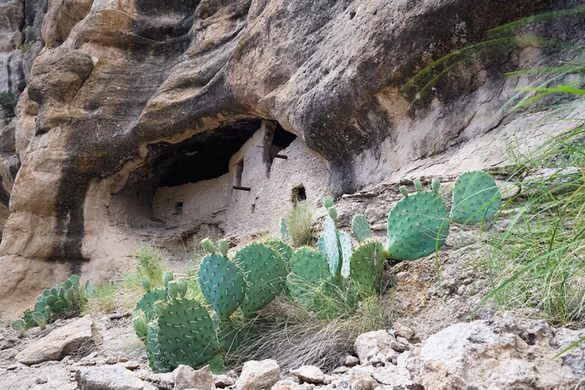
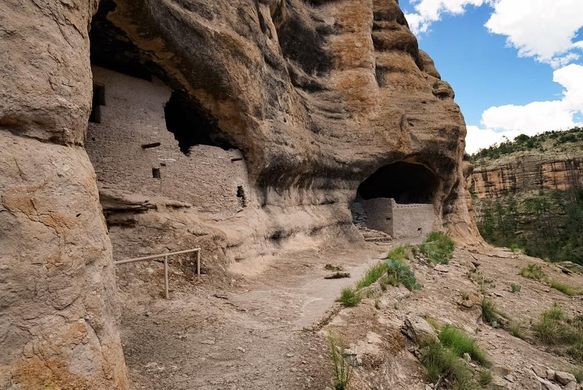
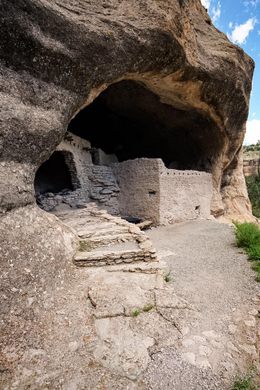
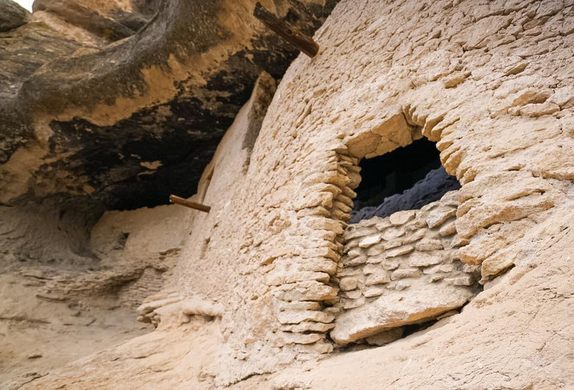
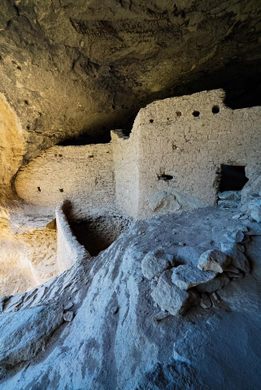









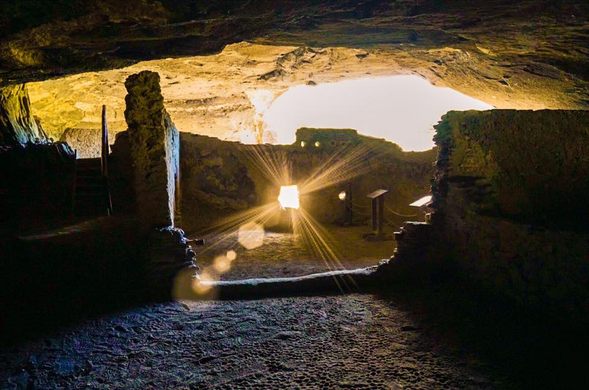
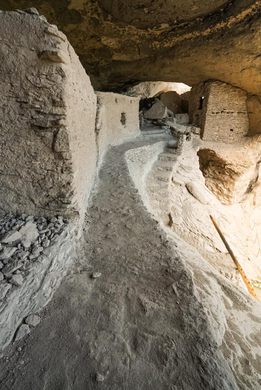
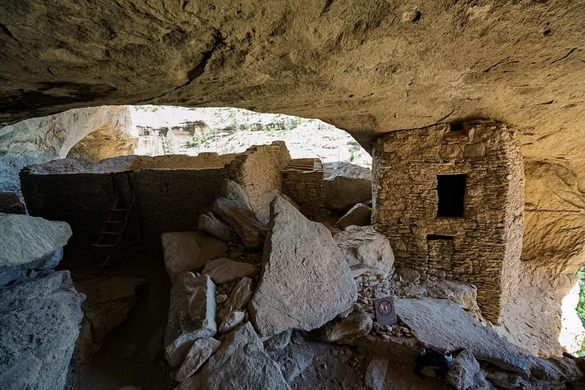







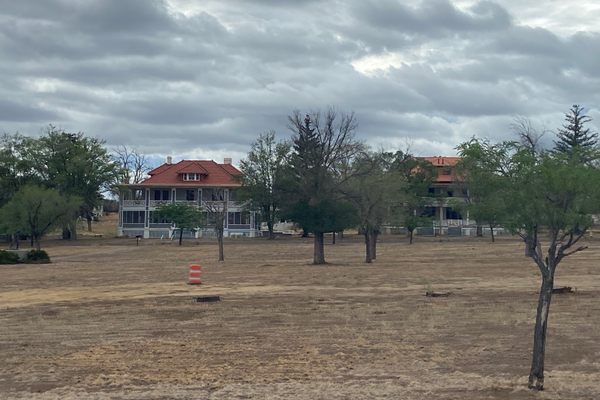
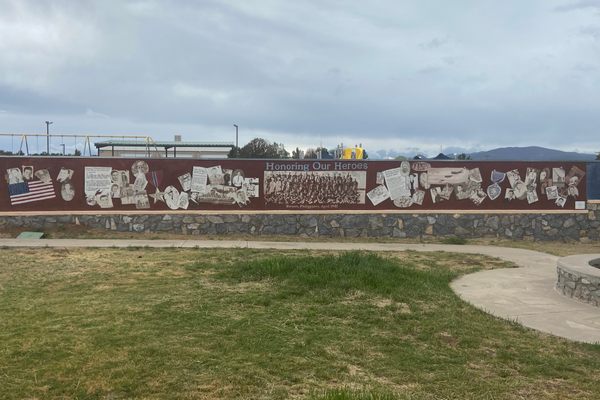

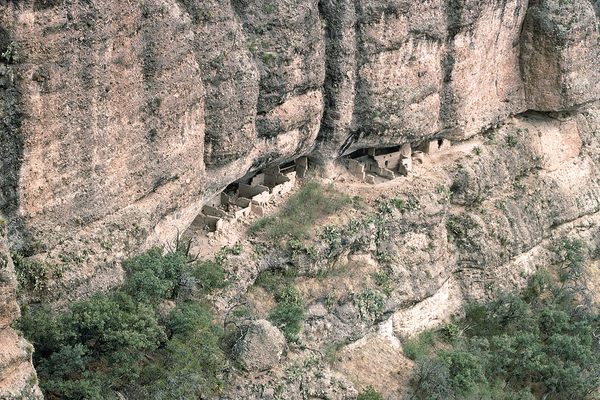
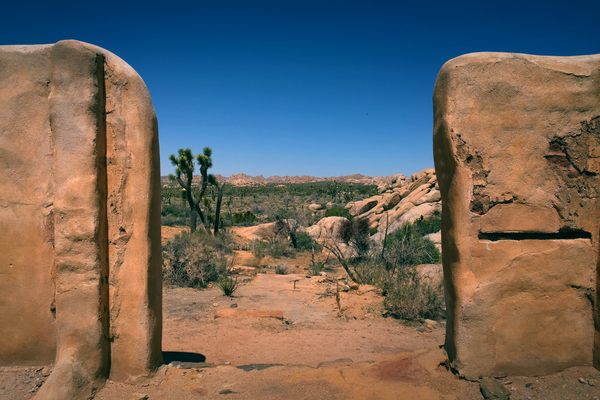
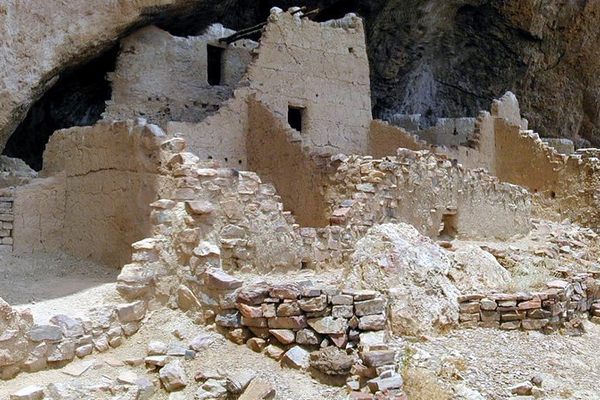


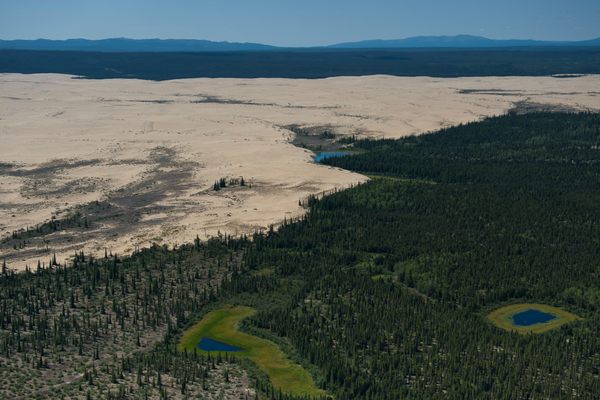

Follow us on Twitter to get the latest on the world's hidden wonders.
Like us on Facebook to get the latest on the world's hidden wonders.
Follow us on Twitter Like us on Facebook